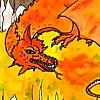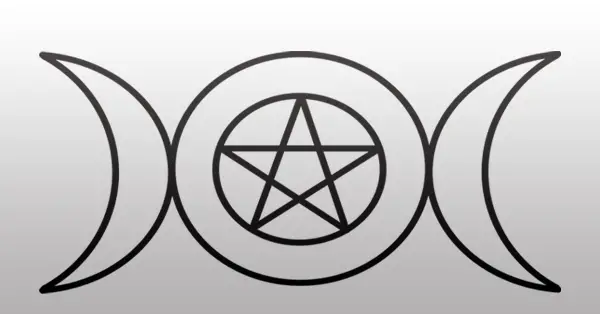Common error using brushes for painting a starry night with a moon
 cherpenbeck
Posts: 1,411
cherpenbeck
Posts: 1,411
Due to some new promotional pictures (and a lot of older backgrounds on DAZ and other stores) I've got an advice for background artists.
If you paint a sky with stars and moons (or other planets in space), more often than not you use brushes, and brushes of the moon or other only partially lit planets tend to have the form of a sickle (crescent moon). But ... moons and planets are globes. Globes, which are not see-through, without substance, just not lit with light all over. So it is impossible for stars to shine through them. So there has to be a circle shape without stars. Any stars.
But I can't count the times I saw a background with stars on both sides of the sickle. Please, consider that.
(Except of course you make a magical universe where stars are actually small enough to fit between the earth and the moon).
P.S.: There were some beautiful backgrounds I didn't buy just because of that error.


Comments
You know, I never paid attention to that.
But now that you mention it....
I see how common that is....
and this is more or less what it should be....
I tried to make a crescent moon but it is hard to do 'scientifically correct' in iRay Sun & Sky.
That's something I never noticed before!! You're right! So many have stars where stars should not be... Why didn't I ever notice this?
Perhaps, because on the actual sky the moon is such a small object that we don't notice conciously how he hides some stars.
But take a Science-Fiction background, with a huge moon or planet in the background, and the problem becomes glaringly obvious.
She is the focal point of the sky
Very interesting point! Now I'll be looking for that in backgrounds too.
I'm German, for us the moon is male!
But the Goddess symbol is the moon in her 3 phases. Waxing, full and waning
In Norse folklore, the moon is male.
https://en.wikipedia.org/wiki/Máni
It's a hunk of dusty rock. It has no gender.
You mean It’s not cheese :-(
Yup. And that's why we've never been back.
this irritates me every time I see it and I've always wondered why people don't get it, sometimes you even can see the dark side lit a bit
in exchange our sun is a lady :D
Unless the moon is hiding some jiggly bits somewhere where we can't see, it is neither male nor female. lol I don't get people's propensity for trying to assign a sex to sexless objects. :P
Guessing because you speak English as a first language. Many languages are permanently gendered.
I speak English as a first language, However the moon has always been female to me.
In Welsh the moon is female, and welsh is the closest to the original Brythonic language which would have been spoken in mainland Britain before the Angles and Saxons invaded.
Yes. This.
Most Romanic and Germanic languages gender all nouns. English (which IS a Germanic language) is actually the weirdo there! LOL
But also, the reason a "sex" is assigned to various aspects of nature, like the earth, the moon, trees, water, etc is because of the lore of that land. Myths and legends of gods and heroes personified these things and so... gendered them.
English is actually a fabricated language, a mongrel language.. It is made up of Brythonic, Gaelic, Latin, Angle, Saxon (ie Germanic) French from the Normans and even some words have snuck in from the viking invaders. so you have a problem there already Brythonic the moon was female the Germanic invaders saw her as male and then the Norman invaders went back to thinking of her as female.
English is still genderless except for pronouns. I am 99% sure none of us are from far enough back we learned a gendered version.
I remember the Man on the Moon as a child because i was told you can see a man's face looking at the moon. That the moon was female in other believes came later in high school or college.
I think all these assigments of gender are related to old beliefs of traits considered feminine, masculine, neutral and how those traits might effect a person in their daily lives. People were most familiar with other people and their expectations of human behavior were helpful if assigned to new, strange objects as a safety guide when language was first invented and continued to be rapidly expanded. If, for example you are telling a religious story about the, 'Old Groot' creature that is actually a species of tree for example, imagine how you could temper and manipulate the expectations of what the 'Old Groot' creature might behave like by assigning a masculine, feminine, or neutral (aka child) article to the object. You create natural curiosity, human emotion, and human expectations just by using those articles implying they have human traits. Why, we today are made curious as to just why those objects obtained the articles assigned to them so long ago so it's an effective story telling and safety technique.
Of course I'm sure those traits could be helpful or a hindrance without regard to gender or sexual maturity and lots of times which would completely dependent on context. You'd have the audience though paying much more attention to the objects than otherwise. A good way really to teach caution and respect of nature. You'd think, for example, things that were physically strong or rough would be assigned a masculine article and things more delicate and beautiful would be femine. While careless and naive might be assigned a neutral article like a child; e.g. it's Das Buch, because what is a book if it's not a writing of events of the careless and/or naive? There probably were more traits than those. What those traits really were is lost in time.
Trust me: English is Germanic.
https://en.wikipedia.org/wiki/English_language
I have learned to read French, Spanish,English and German. I make mistakes speaking them quite often, though.
English in US really only uses gender, and except for the moon, it seems to always be female gender referring to a vehicle of some sort, or a geopolitical entity but implicit in refering to the geopolitical entity as female is the assumption of peace and bounty but the willingness to go to war if needed. And nature itself without regard for geopolitical orginizations is often referred to as feminine.
There probably other things in US English assigned male gender informally besides the moon but I can't think of any right now except the neutral gender of the sun is drawn typically as these smiley childlike gelding creatures along with most other inanimate objects and non-human animals that get animated for children's shows and storys.
Language is a fascinating topic to me. The words we have in our languages and the associations we have with those words shape the way we think of so many things. It shapes HOW we think. What we think.
It's funny to me that in English America (at least, today) people will get offended by things like "gendered" things, when in SO MANY other languages... it's just part of the language.
Let me use a few examples.
In English "the" (an indefinite article) is genderless. When we say, "The day" or "the night", there is nothing inherently "gendered" about them.
But, in French, "the day" is "Le jour". In German, it is, "Der Tag".
Both of these examples have a "male" or "masculine" article before them. Here, "the" is male.
But, "the night" in French is "La nuit". In German it is, "Die Nacht". Here, "the" is feminine.
These are not like us referring to our cars as "she". This is actually how the language is spoken. So, in both examples, the "maleness" or "femaleness" is not a choice. It is just how the language is.
It is neat, language really. For example you mentioned day, which is typically thought of a a known expectation with clear visibility, learning, hard work, and understanding and is assigned masculine gender and the nacht in it's less visible ways but also as a time typically of eating, washing, rest and safety is called feminine. Clearly there was reason to do that, they aren't random assignments and they are associating one's personal expectations of human behavior with these objects to temper one's expectations and guide their own behavior. In US English the night is also a she and mysterious. It can be seen as a warning to men that night is assigned a feminine gender to encourage men to behave more feminine in those situations dealing with those objects rather than associate night and mystery and woman as equals it's implying behave like a woman in mysterious circumstances and with mysterious objects. It's pretty ingenious if that's what they've actually done originally.
And, so I should have added:
"The moon" in German is " Der Mond". "Der" (at least, here - German is a little weird)) is masculine. So yes, in Germany, the moon is male.
Yes!!! It is interesting to me that you, when making associations you have with the words with "day and night", very definitely have made "American" associations with those ideas. Those "American" associations are very Roman!! In some cultures, Night was associated with wisdom and knowledge. And yes, how we make these associations shapes how we think.
Another example:
In some Asian cultures, White is the color of death and mourning. Not Black.
Haha, Stezza! I missed this earlier!
Well, I've never actually been to the moon, but rumours given to us from those to have claimed to have been there, are that it's just a big dusty rock. LOL. They could be lying though. To keep all that cheese to themselves, maybe???
They must of made it masculine because it was a one of the few things that was well known and easily seen at night wherever you traveled, and hence it was learned and known.
Well, if you like reading folklore and want to explore those associations of the "male" Germanic moon, you can follow the link I gave above to learn about the Norse tale of Máni.

